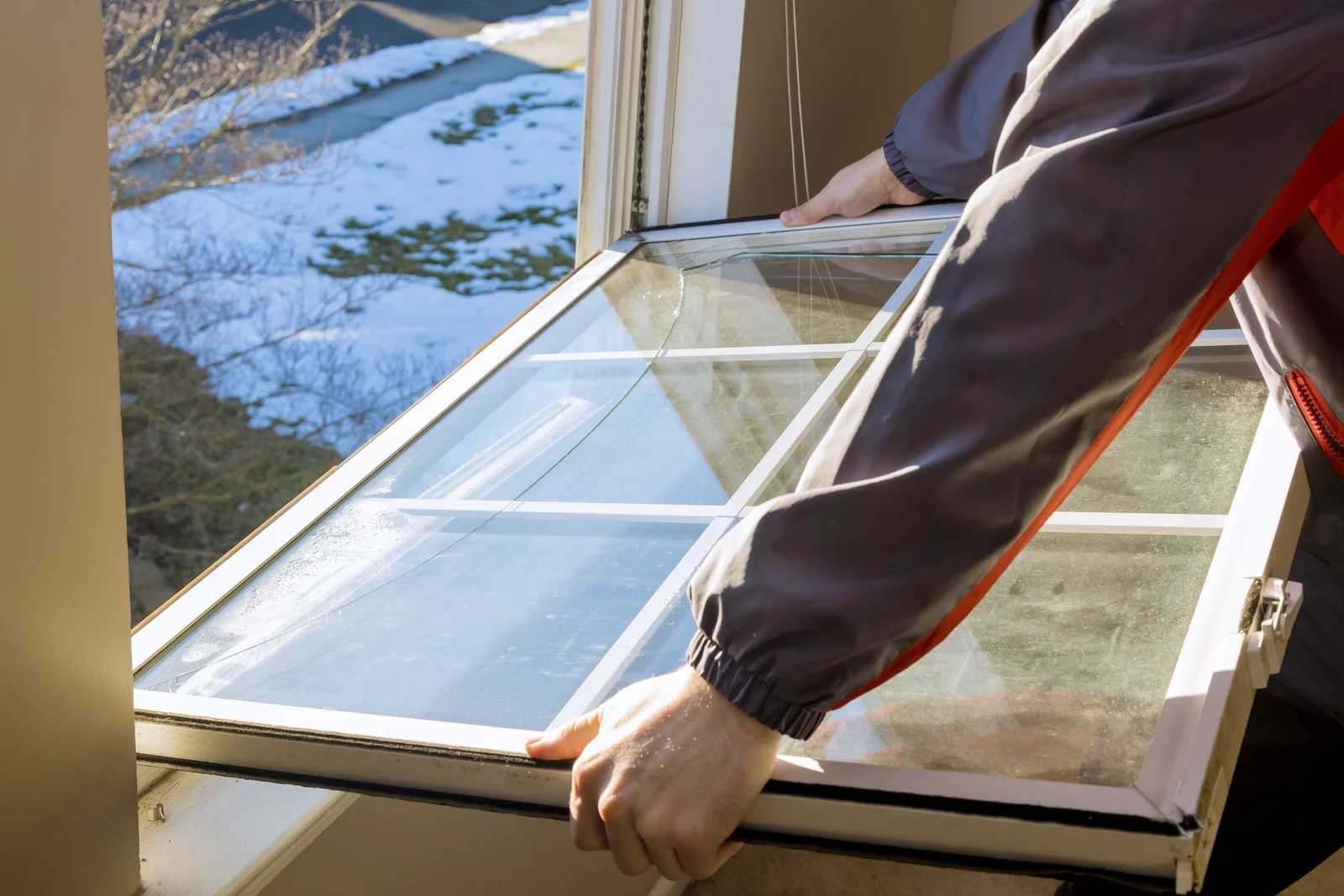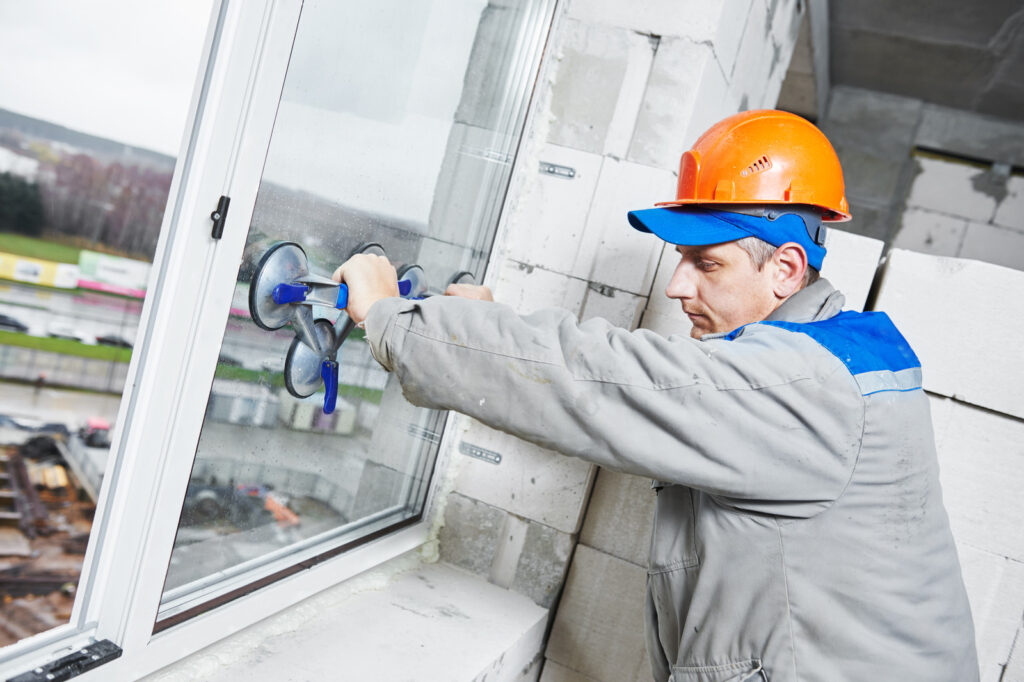
10 Things You Should Know Before Replacing Windows at Home.

Replacing windows in your home is a significant investment, both in terms of aesthetics and functionality. Whether you’re looking to upgrade for energy efficiency, enhance security, or refresh your home’s appearance, it’s essential to be well-informed before diving into the project. In this blog, we’ll walk you through ten crucial factors to consider before embarking on your window replacement journey. From assessing the condition of your current windows to selecting the right glass options and hiring a reputable contractor, we’ve got you covered.
Assessing the Condition of Your Current Windows:
Before you begin your window replacement project, take the time to assess the condition of your existing windows. Look for signs of wear and tear, such as rotting frames, cracked glass, or difficulty opening and closing. Evaluating the current state of your windows will help you determine the scope of your replacing windows project and identify any underlying issues that need to be addressed.
Understanding Window Terminology: Key Terms to Know:
Windows are made up of several parts, including the frame, sashes, and glazing. The frame material can be wood, vinyl, aluminum, or fiberglass. Sashes are the movable parts that hold the glass in place, and grilles and grids can be added for visual interest. There are different window styles, such as casement and double-hung. Glazing options include single-pane and triple-pane windows, with low-E coatings and gas fills offering insulation and UV protection. U-factor and SHGC ratings indicate a window’s energy performance. Proper weatherstripping and caulking can prevent air and water infiltration. The NFRC label provides energy efficiency ratings. Warranties protect against defects and damage.
Benefits of Replacing Windows: Beyond Aesthetics:
While improved aesthetics are a compelling reason to replace windows, the benefits extend beyond appearance. Discover how new windows can enhance energy efficiency, reduce noise pollution, improve security, and even increase the resale value of your home. We’ll explore the hidden advantages that make window replacement a worthwhile investment.
Improved Indoor Comfort:
Old, drafty windows can create uncomfortable indoor conditions by allowing hot or cold air to enter your home. By replacing them with energy-efficient windows, you’ll enjoy more consistent temperatures and fewer drafts. This results in a more comfortable living environment for you and your family year-round.
Noise Reduction:
Upgraded windows with thicker glass and improved seals act as a barrier against external disturbances, creating a quieter and more peaceful indoor environment.
Enhanced Security:
By replacing them with newer, more secure models featuring reinforced frames, multi-point locking systems, and impact-resistant glass, you’ll enhance the security of your home and protect your loved ones and belongings.
UV Protection:
New windows equipped with UV-resistant coatings or tinted glass can help block harmful UV rays while still allowing natural light into your home. This helps to preserve the appearance and longevity of your interior furnishings.
Increased Home Value:
Energy-efficient windows, enhanced curb appeal, and improved functionality are attractive selling points for potential buyers. By upgrading your windows, you’re not only investing in your own comfort and savings but also in the long-term value of your property.
Measuring for Replacement Windows: Getting the Right Size:
To measure for replacement windows, assess the existing window openings, determine the frame type and style, account for rough opening vs. frame size, allow for shimming and adjustment, check for squareness and level, refer to manufacturer guidelines, and seek professional assistance if needed.
Choosing the Right Glass: Options for Insulation and Safety:
Single-pane windows are the most affordable option but are prone to energy loss. Double-pane windows offer improved insulation and sound insulation. Triple-pane windows are the most energy-efficient but more expensive. Low-E coatings and gas fills further enhance energy efficiency. Impact-resistant glass and safety and security features, such as tempered glass and reinforced frames, provide added protection.
Noise Reduction: Enhancing Comfort and Tranquility:
Specially designed to dampen sound vibrations, noise reduction windows feature multiple glass layers and specialized seals that block noise from entering your living space.
How Noise Reduction Works:
By disrupting sound wave transmission, these windows absorb and dissipate noise energy, promoting restful sleep, improved concentration, and overall well-being.
Benefits:
- Improved Sleep Quality
- Increased Concentration
- Enhanced Relaxation
- Better Overall Comfort
- Factors Affecting Noise Reduction:
- Window Configuration
- Frame Material
- Professional Installation
Customization Options:
Tailor noise reduction windows to your needs with features like laminated glass and insulated frames for maximum tranquility.
Security Features: Protecting Your Home and Loved Ones:
Windows can be made more secure through reinforced frames made of materials like aluminum, steel, or fiberglass. Multi-point locking systems, tempered glass, impact-resistant glass, and security film offer additional protection against break-ins. Window sensors and alarms can detect unauthorized entry attempts and alert homeowners and authorities. Locking restrictors limit how far windows can be opened, offering protection while allowing for ventilation.
UV Protection: Preserving Your Furniture and Flooring:
UV radiation is a harmful type of electromagnetic radiation emitted by the sun that can cause significant damage to materials exposed to sunlight over time. It can fade and deteriorate various materials commonly found in homes, including wood furniture, fabrics, carpets, rugs, and artwork. Installing windows with UV-resistant coatings or tinted glass can help block harmful UV rays while still allowing natural light into your home.
This protective measure helps preserve the appearance and longevity of your interior furnishings, reducing the need for costly repairs or replacing windows. When selecting windows for your home, consult with a window professional to determine the most suitable UV protection options for your specific needs and preferences.
Impact on Home Value: How New Windows Can Increase Resale Value:
New windows can enhance curb appeal, improve energy efficiency, reduce maintenance costs, increase natural light, and improve functionality and security. They offer a high return on investment and can make your home more marketable, leading to a quicker sale and potentially higher offers.
Selecting a Reputable Window Replacement Contractor: Tips for Hiring:
Choosing the right contractor is just as important as selecting the right windows. Learn how to research and vet potential contractors, ask the right questions, and obtain multiple quotes to ensure you make an informed decision. Our tips will help you find a reputable contractor to deliver quality artistry and exceptional service.
Conclusion:
Replacing windows is a major home renovation project that demands careful thought and planning. Fortunately, our guide outlines the key factors that will enable you to make informed choices and attain the desired outcomes for your home. Whether you’re prioritizing energy efficiency, aesthetics, or security, we are here to help you navigate the window replacement process with confidence. Begin your journey towards a brighter, more beautiful home today!

